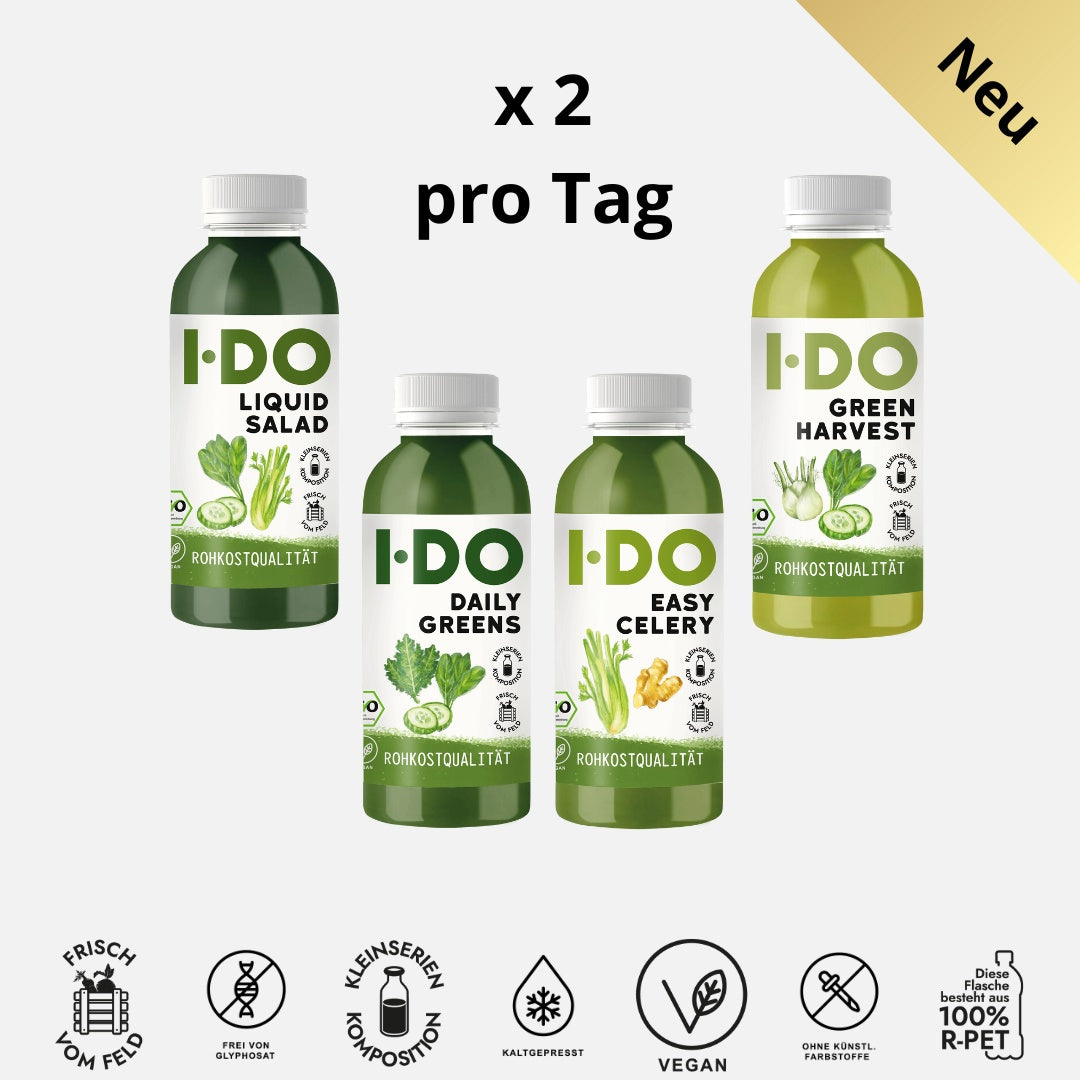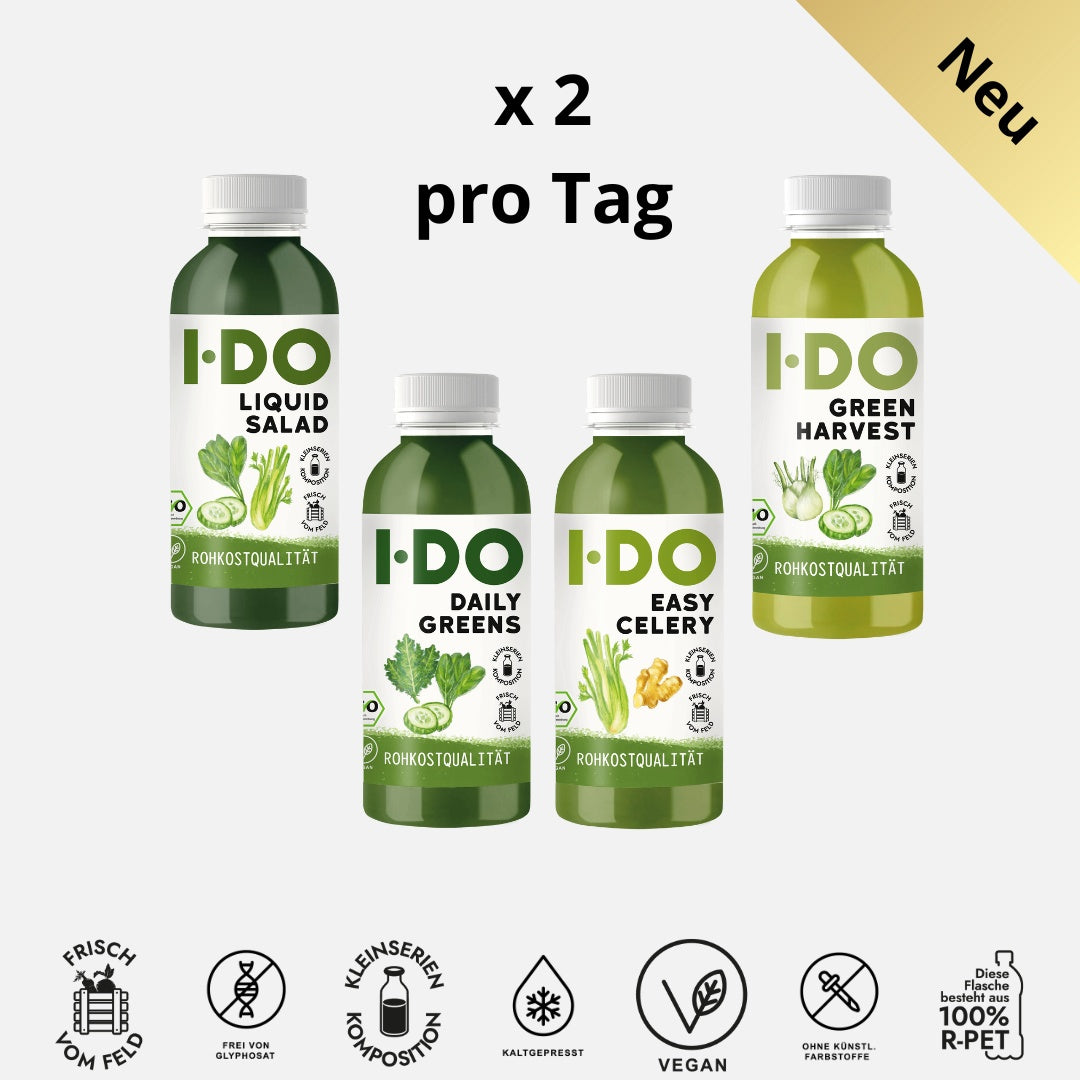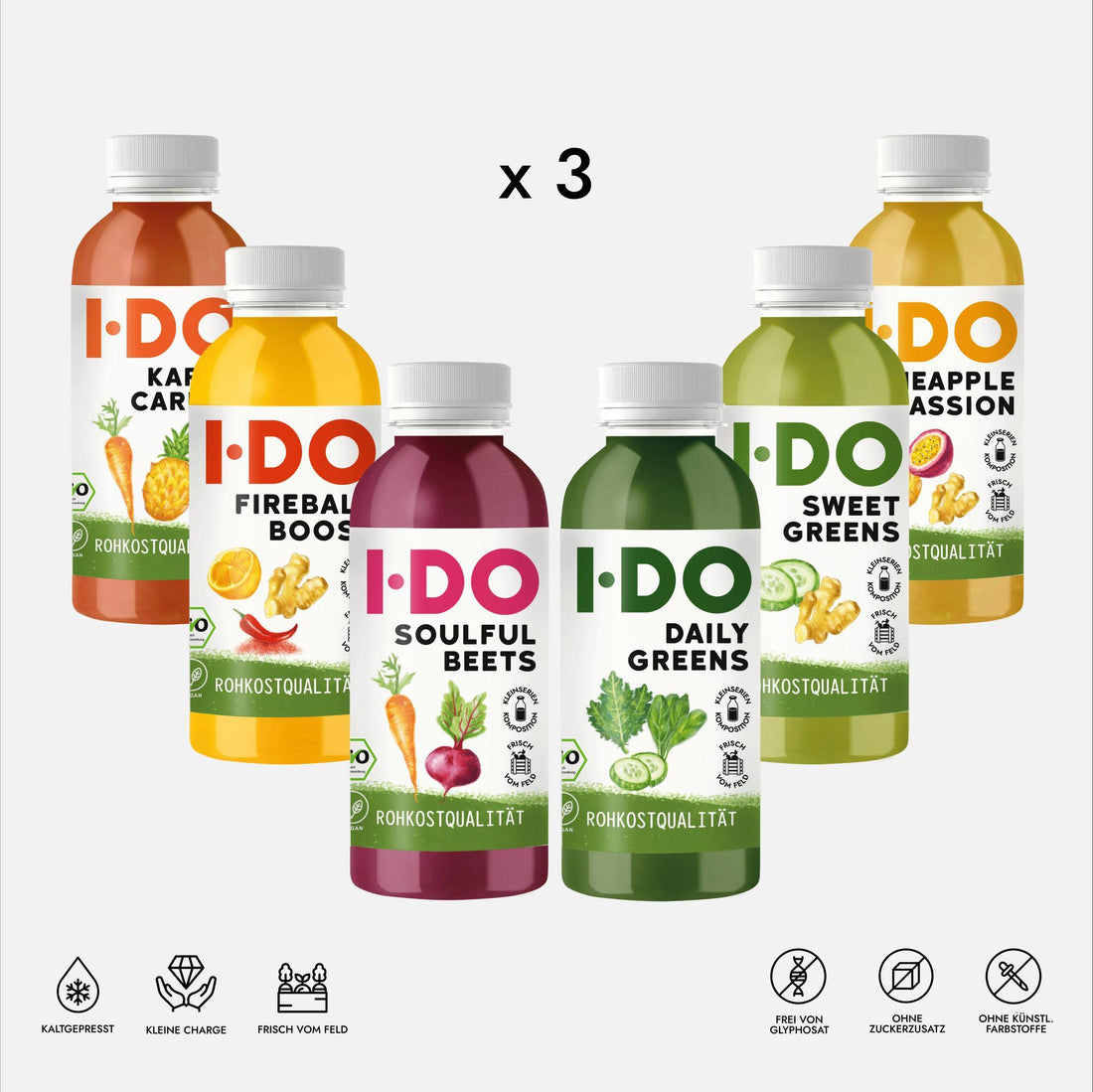Eating vegetarian & vegan: Conscious nutrition is so easy
Plant-based eating is becoming increasingly popular, and for good reason. More and more people are choosing to avoid animal products entirely or partially. Some for ethical reasons, others for environmental reasons, and many because they are discovering the health benefits of a diverse, plant-based diet.
A diet rich in vegetables, fruit, legumes, nuts, and whole grains can not only be varied and delicious, but also brings with it a number of positive effects. In this article, you'll learn which health aspects are particularly exciting and how you can integrate a plant-based diet into your daily routine step by step.
Four health aspects of plant-based nutrition
1. Protection against diseases
Studies show that vegetarian and vegan diets can be associated with a lower risk of type 2 diabetes, cardiovascular disease, certain cancers and other chronic diseases (1,2).
2. Metabolism & immune system
Foods such as vegetables, legumes, and whole grains provide fiber and bioactive compounds. These can support metabolism and immune function, thus contributing to a well-balanced diet (1,2).
3. Intestinal health & inflammation regulation
Fiber-rich foods such as whole grains, legumes, vegetables, and fruits are valuable supporters of the intestinal flora. They can not only stimulate digestion but also influence processes in the body related to inflammation regulation (2).
4. Bone health & nutrient balance
If you follow a purely plant-based or vegetarian diet, it is worth keeping an eye on certain nutrients.
Vegetarians sometimes have lower levels of iron, iodine, vitamin B12 and D.
For vegans, this also affects vitamin B2 and zinc. A careful selection of foods or, if necessary, supplementation can help prevent deficiencies (1).
This is how you can easily implement a plant-based diet 🌱
A plant-based diet doesn't have to be complicated. With a few simple steps, you can achieve a lot:
🥒 Eat lots of fruit and vegetables, preferably fresh and seasonal
🫘 Include legumes regularly
🌾 Choose whole grain products to benefit from fiber for gut health and satiety
💊 Keep an eye on nutrients such as vitamin B12, D, iron, iodine and zinc and supplement as needed (1)
🧄 Integrate garlic, onions & chicory, they provide valuable prebiotics for the intestine
🫘 Combine legumes + whole grains to ensure a complete amino acid supply
⚖️ Plan meals, this brings variety and nutritional security
Simple support in everyday life
Especially when things are in a hurry in everyday life, practical supplements can help accommodate more plant-based diversity. Our I DO organic juices contain 100% certified organic fruits, vegetables, and superfoods. Cold-pressed, preserved using pressure instead of heat, and without additives, they are a straightforward way to incorporate plant-based nutrition even more easily into your daily routine, whether as a quick snack, a gentle start to the day, a light snack, or a companion on your fasting days.
Sources:
(1) ANSES. Health effects of vegetarian diets and associated dietary guidelines. ANSES Expert Appraisal. 2025 Mar 13. Available from: https://www.anses.fr/en/content/health-effects-vegetarian-diets-and-associated-dietary-guidelines
(2) Bali A, Naik R. The Impact of a Vegan Diet on Many Aspects of Health: The Overlooked Side of Veganism. Cureus. 2023 Feb 18;15(2):e35148. doi: 10.7759/cureus.35148. Erratum in: Cureus. 2025 Apr 10;17(4):c216. doi: 10.7759/cureus.c216. PMID: 36950003; PMCID: PMC10027313.












